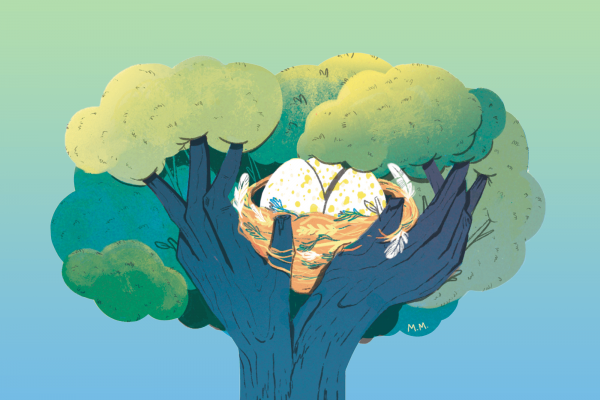THE CHRISTIAN LIFE returns again and again to prayer. We pray by ourselves, and we pray with others. Worship draws us to the scriptures, with the psalter at the center of the Bible, which bears witness to the back-and-forth, the disagreement and commitment, the frustration and intimacy, of God’s communication with God’s people—a textual record of conversations across the ages.
With the guidance of these holy words, prayer transfigures us with divine communion, our lives caught up in the life of God. We find ourselves with the disciples when Jesus takes them up the mountain, where “he was transfigured before them” (Mark 9:2). We are Jesus’ companions. He welcomes us into a life of prayer, which is our union with God.
In After the Spirit, theologian Eugene Rogers uses the traditional language of church doctrine to describe this process of deification. “The Holy Spirit incorporates human prayer into the prayer of the Son to the Father.” In the biblical scene, we are standing there with Jesus on the mountain as the thick presence of heaven descends on him like a cloud (Mark 9:7). “Prayer is a transfiguration of human beings,” Rogers explains. This story is about our participation in the trinitarian life of God.
The Bible passages this month lead us from Epiphany to Lent, with Transfiguration Sunday as our transition from one season to the next. During Lent we open ourselves to how the light of Epiphany’s revelations about God exposes sin’s insidious powers in our lives and in the world.
Read the Full Article

